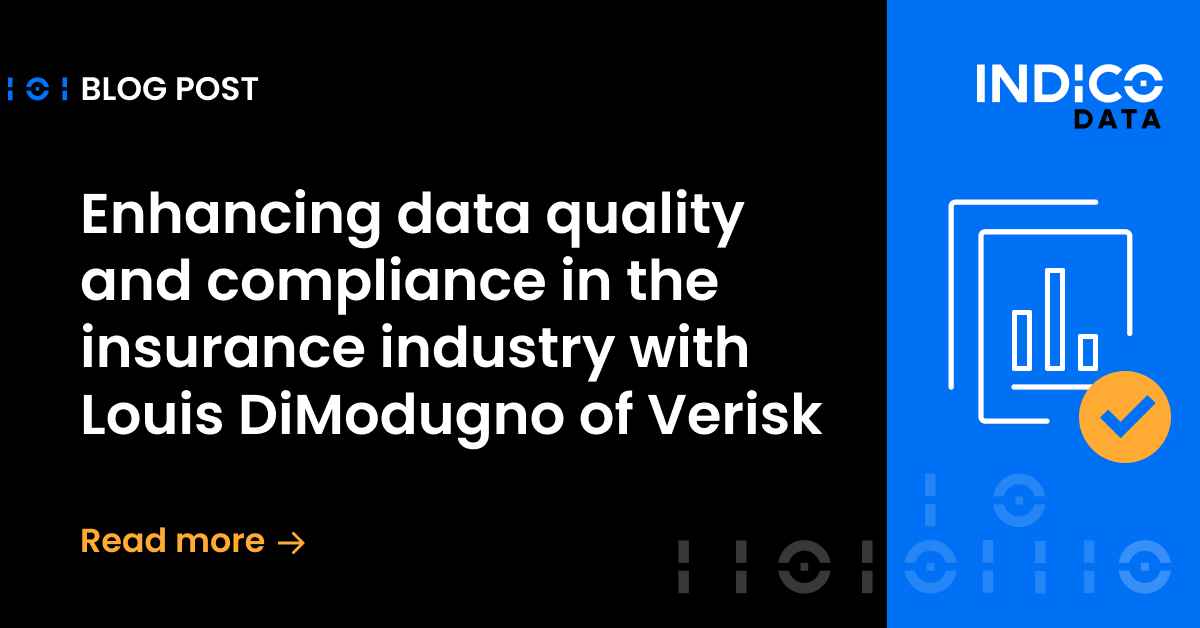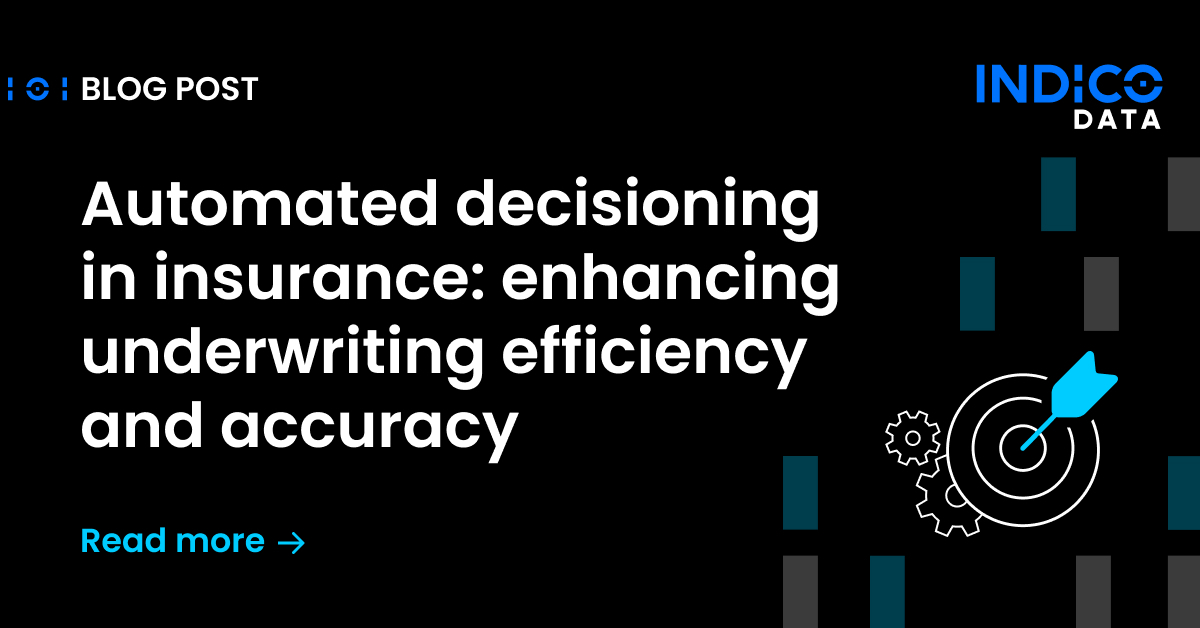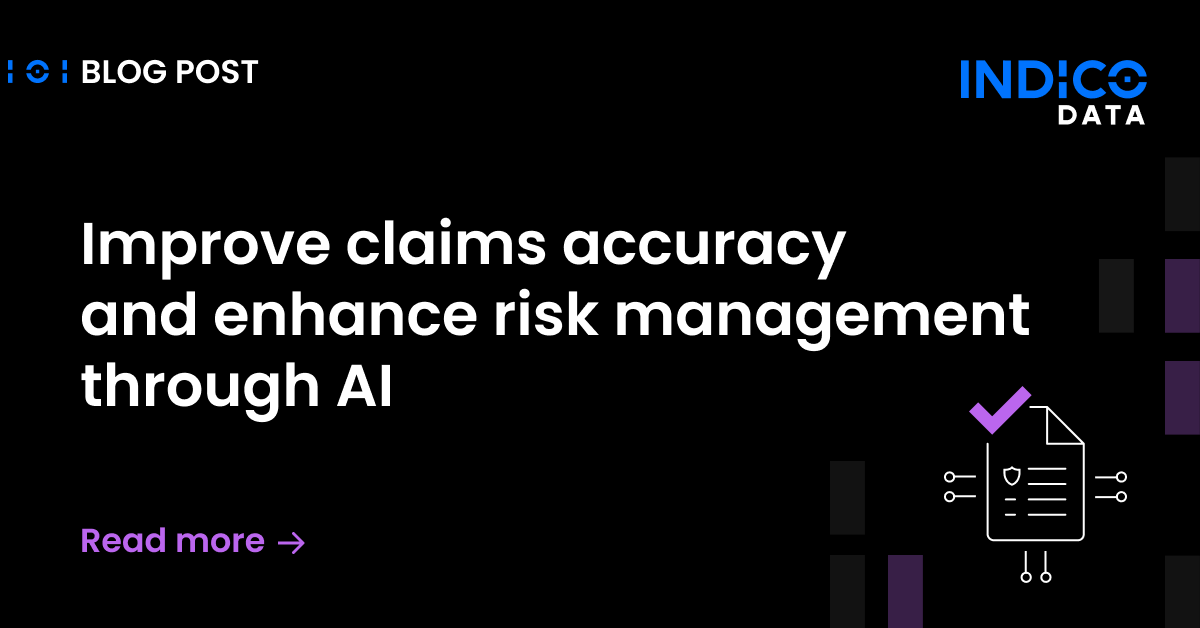During the recent Insurtech Insights EU 2024 conference, Indico’s CEO, Tom Wilde, shared some insights into how AI is changing the game for insurance. Joined by other industry leaders, the panel explored critical themes, from AI-driven decision-making to managing emerging risks and ensuring regulatory compliance.
AI and decision-making
During the discussion, Wilde emphasized the insurance industry’s transition “from the data era to the decision era,” where the primary goal is to streamline decision-making processes. He detailed how AI facilitates this transition: “We sort of start at the very beginning of that supply chain for customers, turning unstructured into structured [data]… the biggest takeaway of the application of AI now is that we have crossed into this decision era.”
This shift marks a crucial development in handling data, where the focus is on generating actionable insights rather than merely collecting information. By transforming unstructured data into a structured format, insurers can enhance their decision-making speed and quality, impacting everything from policy pricing to risk assessment.
Related content: Leveraging LLMs and automation in insurance: A webinar recap
AI integration and operations
Wilde also discussed integrating AI within existing operational frameworks, emphasizing that AI does not replace human input but augments it. Integrating AI into preexisting manual processes helps streamline tasks like claims processing and risk management, increasing efficiency and decreasing the likelihood of human error.
Similarly, a significant portion of the panel’s discussion was dedicated to the regulatory and ethical implications of deploying AI in insurance. The industry must navigate these waters carefully, ensuring that AI applications are transparent and fair. Wilde pointed out the necessity of asking the question: “…How are you going to make your decision supply chain transparent and explainable?” explaining that companies must answer this question “to make sure that you don’t end up with… algorithmic processes that could be considered biased.”
Reinforcing the importance of human oversight, Wilde highlighted that AI tools are meant to assist rather than replace human judgment. This approach ensures that AI’s efficiency benefits do not come at the cost of ethical considerations or accuracy. “[Having a] human in the loop is important to reduce risk and also to achieve the accuracy that you’re hoping to,” he noted.
The panel also shared examples of how AI applications have significantly improved efficiency within the insurance sector. These innovations allow insurers to handle more volume without additional resources, effectively boosting productivity and enhancing service delivery.
Related content: How to adopt AI with intention and quality: tips from Sunil Rao
Underwriting and emerging risks
The discussion also addressed how AI is instrumental in underwriting and managing emerging risks. Jonathan Salter of AXA XL spoke to how AI is used to analyze geospatial data, such as satellite images, to improve underwriting decisions: “We’re working on several projects at the moment… So one of the things we’re doing at the moment is around geospatial underwriting. We spend a lot of time on looking at aerial images, satellite images, and then trying to understand how can we turn that into some kind of data that can make better underwriting decisions and help our clients…”
Such applications are pivotal in adapting to new challenges, such as environmental issues and technological advances, that introduce new variables into the risk assessment equation. AI’s ability to rapidly process and analyze vast datasets allows insurers to respond more dynamically to these changes.
Wilde added: “We’ve developed an intelligent intake solution… We’re not the decision, but we are the data for the decision.” This statement underscores the pivotal role of AI in transforming raw, unstructured data into structured, actionable insights that empower underwriters to make better, faster decisions.
He emphasized the importance of starting with the end in mind—identifying the decisions that need to be made and then engineering processes backward to ensure all contributing factors lead to improved decision-making. “What you really need to do now is think about your decisions through the lens of a supply chain, a decision supply chain,” Wilde advised, highlighting the importance of a structured approach to decision-making enabled by AI.
Conclusion
Our participation in Insurtech Insights EU 2024 underscores our commitment to leading the charge in integrating AI within the insurance industry.
This event provided an opportunity to discuss how AI is transforming different aspects of the insurance industry, from operational efficiency and risk management to regulatory compliance and ethical concerns. As the industry undergoes continuous changes, we are leading the way by providing technological solutions that meet and surpass modern insurers’ needs.


